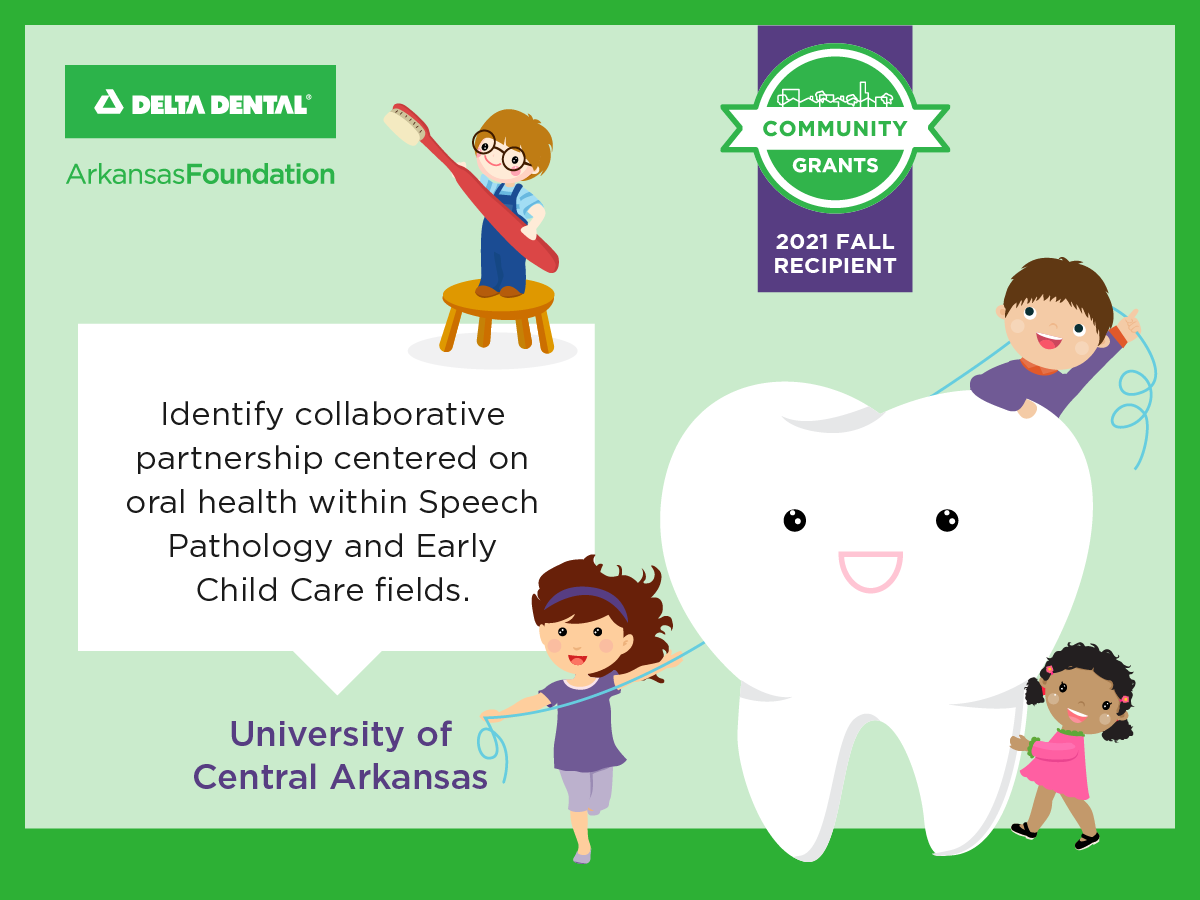University of Central Arkansas (UCA)
From the #deltadentalARFoundation: Name a professional likely to detect dental problems:
☐ Speech language pathologist
☐ Dietitian nutritionist
☐ Dentist
✅ All of the above.
Surprised?
While “dentist” may be the most intuitive answer, it could be a speech language pathologist who is the first to diagnose a possible connection between a speech impediment and poor oral health. Or the dietitian nutritionist who counsels a patient on weight control and hazards a guess that a diet high in sugar might have caused cavities.
A research project is now underway at the University of Central Arkansas to determine how an interprofessional collaboration of a dentist, a speech language pathologist and a dietitian nutritionist could improve the oral health of children enrolled in Head Start in Conway and Faulkner counties. A #communitygrant from the Delta Dental of Arkansas Foundation will fund the recruitment of participating families and focus groups starting this summer.
“Through the focus groups, we want to establish the families’ needs and knowledge of oral health and nutrition to guide the project framework,” explains Alicia Landry, Ph.D., RDN, LD, DND, associate professor in the Department of Nutrition and Family Sciences at UCA. “Head Start children have some of the highest rates of dental coverage [through Medicaid], yet these children also experience high rates of tooth decay, unmet dental needs, high rates of dental pain and few dental visits. We want to find out why.”
An interprofessional partnership might help find some answers.
Speech language pathologists and dietician nutritionists can offer vital clues about a child’s dental health because they each conduct oral health assessments. A speech language pathologist might treat a patient for a lisp or stutter and suspect that a poor bite or missing teeth could have caused the speech impediment. The dietitian nutritionist might educate the family about eating foods lower in sugar and avoiding other eating and oral health care behaviors that could lead to tooth decay. Their subsequent referrals to a dentist will increase the chances that the children get the dental care they need in addition to the speech training and nutritional guidance.
We’re excited to fund this research project. Do you plan to conduct community-based research? Check out our funding opportunities here to determine your eligibility for a grant to help pay for your project. Our new grant cycle opens soon.
This story was first published on our Facebook and Instagram pages.
